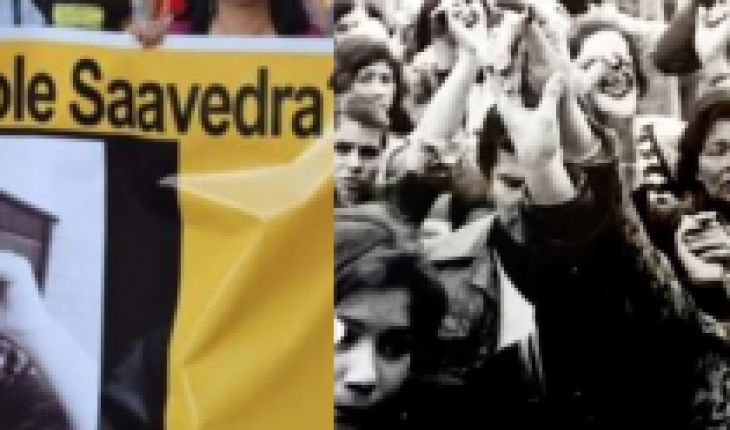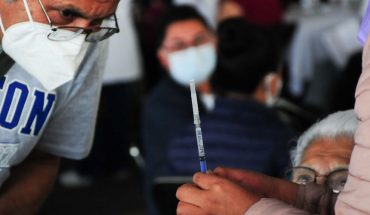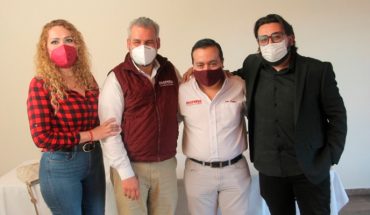Have you ever thought that the great female personalities who have marked eras have done so because they have managed to conquer great milestones? Like being the first in some field of knowledge or having achieved some decision-making position never touched by a woman.
It may also be that great women are remembered for having carried out some invention that solved the lives of many people or for a certain public intervention that represented the thought that no other could express. Whatever the reason, the truth is that there are other great struggles with different and perhaps more painful implications that some women have had to embody.
Examples of this is the case of María Bahamondes, cousin of Nicole Saavedra who chained herself in the front of the Quillota prosecutor’s office to be heard by the slow progress of the case for the crime of lesbodio against Nicole or that of Ana González who after the loss of her children, daughter-in-law and husband led the first hunger strike in times of military dictatorship.
Thus, recent history has been marked by the growing female influence and “by the struggle of women who opposed patriarchal violence in all its manifestations, starting with state violence to symbolic violence,” says historian Karelia Cerda in an interview with El Mostrador Braga, adding that, “women, generally mothers from their more traditional roles have had the task of influencing and acting in the public space”.
The historian also contributes that, “throughout the twentieth century, violence begins to be taken out of the private sphere to take it to a public problem, to make visible that it is not a personal problem, but that it is political, as already in the 60’s and 70’s feminist activists were raising it. Then in the 80’s we met the feminist activists organized against the dictatorship for democratic recovery (…) From the moment one was the feminists in the street, in this way we assume the collective role of caring for others and others in terms of opposing violence,” she explains.
Cerda, is also co-author of the book “Historical: feminist and women’s movement in Chile, 1850 – 2020”, a text that you can know a journey of the different organizations that have fought for women’s rights and delve into detail the reasons that have actively mobilized the feminist articulation in the last fifty years, being -precisely- the systematic discrimination against the LGBTIQA + community and state violence exercised against women of peoples original with territorial focus the last and most bulladas.
In this sense, we will highlight the case of María and Ana, two women who, although estranged by a generation, faced common struggles both for their causes and for not skimping on means to achieve their goal: justice and peace for their families.
Maria Bahamondes
Maria is the first cousin of lesbodio crime victim Nicole Saavedra Bahamondes who was murdered at age 24 and found near Limache in the fifth region, with signs of torture and her hands tied. She formally led the search for justice and the legal processing of the case on behalf of the family. María recounted the events that occurred on the night of Nicole’s murder, being also one of the connoisseurs of her cousin’s sexual orientation, recognizing that this fact made her vulnerable to gender violence based on discrimination.
María chained herself twice to put Nicole’s case in the public light and be heard by justice, the first of them was in 2017 in front of the Quillota Prosecutor’s Office and the second in the national prosecutor’s office to be heard by Judge Abbot before the precarious progress in the investigation of the case for her death. This political action in search of justice was undertaken in the company of other women activists for the cause, all were arrested and María was accused of qualified damages and public disorder, risking more than three years in prison and fines of up to 11 UTM per month.
In addition, various feminist organizations -including the collective Las Tesis- and the LGBTIQ + community supported the cause demanding that the case be formally considered as a crime of homo/lesbodio and the acquittal of María Bahamondes and her companions for the seizure of the Quillota Ffiscalía.
“It is helpless to see that that day, when we decided to take over the Prosecutor’s Office, in a measure of desperation, in the end Special Forces arrived. And he took us out in such a brusque way: beating us, taking us two or three and having us all night in a dungeon. They beat me until I urinated, they beat us excessively,” he said in an interview with CNN during the commemoration of the three-year investigation into the murder.
This 2021, after 5 years of long struggle, the court of Quillota sentenced Víctor Pulgar, author of the kidnapping, rape and murder of the young lesbian, to a sentence of perpetual imprisonment.
Ana González de Recabarren
Ana González de Recabarren was a tireless fighter for Human Rights, who embodied for more than 40 years the demand for truth, justice and reparation for the detainees disappeared in military dictatorship. In 1976, two of her sons, Luis Emilio and Manuel, her daughter-in-law Nalvia, were kidnapped and the next morning before her husband Manuel Recabarren arrived at work.
Since the tragic event that marked her life, Ana González embodied the struggle for the search for her relatives, founding the Association of Relatives of Disappeared Detainees, leading important political actions of search and denunciation, together with other relatives of the victims of crimes against humanity.
He participated in mass searches in concentration camps and detention houses, including Pisagua and Villa Grimaldi, searches outside the legal medical service, as well as streets and police stations at night. She also participated in the first hunger strike in ECLAC (Economic Commission for Latin America) and chains in the front of the former National Congress, even once confessed in an interview with a special report to have thought of burning herself to the bonzo to be heard.
This mother and wife, who never gave up hope of finding her own, closed the fence of her house through which her husband left one morning in 1976, with the promise that it would open the day her family returned. Ana died at the age of 93 on October 26 at the San José de Santiago hospital, waiting for a bed in the public system, without knowing the fate of her relatives.
“Opponents of violence separated by an era”: two Chilean women who assumed the collective role of the search for justice and peace for their families
November 29, 2021 |





